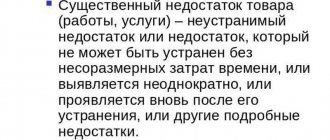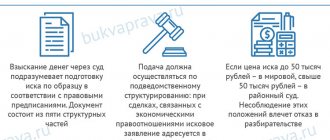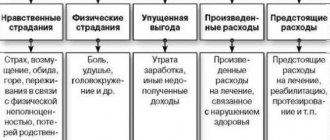Who is protected by consumer protection law?
Every person in modern society is a consumer. And now you can buy anything. From the simplest goods to the most complex services. And we all understand that both the product and the service may be of poor quality. And now you will learn how to protect your rights.
First, you need to purchase the Consumer Protection Law. Or find it freely available on the Internet. For example, here: https://www.consultant.ru/. The fact is that in the Russian Federation the legal rights and legitimate interests of consumers are protected by this very law. Therefore, it will be great if this becomes your reference book.
So, you have acquired or discovered the law “On Protection of Consumer Rights”, what do you need to do with it. Well, of course, you need to read it from cover to cover. Why is this necessary? It is clear that you will not completely remember all the provisions of this law. But at least it will be reflected in your memory that you read something somewhere and know where to look.
This law has 4 chapters. The first chapter , you should never skip it, it talks about what it is:
- consumer;
- salesman;
- service;
- product.
And you will be able to understand exactly what kind of legal relations are regulated by this law.
The second chapter tells us about the rights that the buyer has and the rights and obligations that the seller has to the buyer.
The third chapter tells us how to protect your rights in relations with organizations.
The fourth chapter is more aimed at sellers. Informs them of what responsibilities they have to customers. And, besides, any store must have this law.
But if it happens that you purchased a low-quality product, or some service was provided to you unqualifiedly, be sure to take the law “On the Protection of Consumer Rights” with you when you go to find out the circumstances.
Be sure of your rights. Legislation a priori tells us that the consumer and buyer are always right. Surely you have already heard this phrase. Therefore, we recommend that you remember this provision and be confident in your rights.
Who is covered by consumer protection?
The problem of consumer protection has always existed everywhere, everywhere. Always, even in ancient times, some shopkeeper was in a more advantageous position than his customers.
The modern Civil Code exists taking into account the equality of the parties to the relationship. There is a purchase and sale agreement, a contract for the provision of some services. Everything is provided there. But it provides for equality of relations.
In real life, this equality does not always work out. It is always the one who provides the service that is in a better position than the consumer. The consumer is always unequal. Why does this happen?
This happens because the supplier or seller of services constantly makes these transactions, he sits on it. And the consumer orders a service, purchases some product from time to time. I bought a loaf of bread and went home - everything was disposable. These are one-time transactions and there is no organization.
The consumer generally has a small volume of legal relations - he bought a small quantity and that’s it. And sellers, manufacturers, performers have large volumes. It has always been the case that this is inequality.
Everyone paid attention to this. And even the UN General Assembly, taking into account this prevailing attitude, was forced in April 1985 to adopt a document - “Guidelines for the protection of consumer interests.”
And all UN member states are obliged to comply with these guidelines. In Russia, too, the situation is ambiguous. In Soviet times, until the end of 1991, there was a system where on one side there was a citizen-consumer, and on the other side there were sellers, manufacturers and all government bodies.
It was a socialist system. There were practically no private enterprises, private shops, nothing. Everything was state-owned. And in Soviet times, all legislation was in defense of the state.
When the transition from socialism to capitalism took place at the end of December 1991 and a new Russia emerged, one of the first laws was adopted by the law “On the Protection of Consumer Rights.” These were epochal changes and the law raised consumer protection to a high level. At that time this was of great significance.
A law has appeared to protect the interests of consumer citizens who consume for personal purposes. Some entrepreneur may also consume, but the law was created to protect citizens who purchase goods and consume services for personal needs, for the family, for their own consumption, and not for business purposes.
Thus, this law generally regulates relations between consumer citizens on the one hand and, on the other hand, with sellers, manufacturers, performers and importers. So all these categories were specified in the law.
What interests and rights are protected by this law:
- when selling goods;
- when performing work;
- when providing services.
There are three main categories of rights:
- The right to a quality product. This is a large separate topic; each product must have a certain quality.
- The product must not only be of high quality, but also safe for the consumer.
- The consumer's right to receive information about the product. Many sellers and manufacturers forget about this, but we’ll talk about it another time.
The latter is very important, because the consumer should not buy a “pig in a poke.” These used to be supermarkets, but now everything has become simpler. The person chooses, reads, and looks at the quality. And at the time when the law was introduced, there was counter trade.
That is, there is a counter, behind the counter there is a seller, and behind the seller there are goods. The man looked and did not see what kind of goods were there. Therefore, there was a need to protect such a right as information about a product.
Well, now who does this law apply to? The law applies to consumers. Who are “consumers”? This:
- A citizen who intends to purchase a product or order a service. He only intends to come to the barbershop and get his hair cut. He intends to buy something and came to the store. He is already a consumer, although he has not bought anything yet. There is a desire, he walks around the store and looks. He is already a consumer, although he may not buy anything. But it belongs to the category of consumers and has the rights provided for by this law.
- The one who purchases the goods at the time of purchase. He concludes an agreement, asks the price, pays. At the time of purchase, this is also a consumer.
- The one who purchased the product brought it home and uses it. But he is also considered a consumer and this law also applies to him.
- The one who uses the product. And it may not coincide. The product could have been bought by someone else, for example, dad or mom. For example, my daughter-in-law was watching the TV she bought, something happened to it and she was injured. In this case, the daughter-in-law is also a consumer and the law also protects her rights.
The law does not apply to consumers - legal entities. They also consume, but if they consume as a legal entity, that is, the organization is registered as a legal entity, this law does not apply to it.
This law does not apply not only to legal entities, but also to individuals - citizens who purchase goods for business purposes. Let’s say a certain citizen makes dumplings at home en masse and sells them somewhere to a restaurant, cafe or dumpling shop.
She is not an entrepreneur or a legal entity. But if she does this, makes purchases, takes bags of flour, then in this situation she is not a consumer. The law will not apply to her because she is purchasing goods for business purposes.
The law also does not apply to contractual relations between citizens. The law regulates the relationship between the citizen consumer and sellers, manufacturers, and performers. They should all be organizations or individual entrepreneurs.
If someone asked a neighbor he knew, even for money, to come adjust the drain tank, otherwise the water was flowing all the time, then the law “On the Protection of Consumer Rights” does not apply here. Because on the second side, the manufacturer is not an organization. And this is a one-time deal.
And the law “On the Protection of Consumer Rights” regulates the relationship of a citizen with those who are constantly and systematically involved in this. Those same organizations, legal entities and entrepreneurs. Or sold something. For example, a neighbor sold to a neighbor. Here, no law “On Protection of Consumer Rights” will be applied.
Also, this law does not apply if a citizen buys, but for an organization and at its expense. Or he doesn’t work in this organization at all. He was instructed to buy, given money or later reimbursed, and he buys for the organization.
Or maybe he works there as a supply manager or some kind of administrator. And he buys toilet paper or water for the cooler there. He pays money, as if he were an ordinary citizen. But he acts for the organization. Therefore, this law does not apply here. The law means the consumer - the citizen.
A citizen who consumes a product for systematic profit making is not a consumer. The consumer is not only the one who wanted to buy, is buying or has already bought, but also the one who uses the product. You never know who uses the product. I bought one and use the other.
But the one who uses it, if he suffers as a result of a lack of quality, he also acts with the manufacturing organization as a consumer and the law also protects his rights.

It is important to know
The Russian Federation Law “On the Protection of Consumer Rights” has been in force in our country for more than 20 years. We are all constantly participants in legal relations in the field of its application, buying or selling goods, ordering or performing any work. However, it is not always possible to protect your rights by applying this law. Let's try to understand this with specific examples.
Legislation on the protection of consumer rights regulates the relations that arise between consumers and manufacturers, performers, importers, and sellers when selling goods, performing work, or providing services.
In these relations, a consumer is necessarily an individual (citizen) who plans to purchase or order goods (work, services), is already purchasing or is already using previously purchased goods (work, services). At the same time, the Law clearly established that only that citizen who purchases and uses goods (work, services) exclusively for personal, family, household, household and other needs not related to business activities will be considered a consumer.
The other side of these relations is an organization, regardless of its legal form, or an individual entrepreneur, who can act as a seller, manufacturer, performer, authorized organization, or importer.
So, in order to apply the Law “On Protection of Consumer Rights” to the legal relations of the parties, the following features must be present:
— one party to the relationship should be a citizen, the other party should be an organization (individual entrepreneur);
- a citizen, acting as a consumer, must purchase goods (order work and services) exclusively for personal, family, household and other needs not related to business activities;
— the relationship between the parties must be built on a reimbursable basis (under a purchase and sale agreement, contract, provision of services).
The absence of at least one of the listed signs leads to the impossibility of using the provisions of the Law of the Russian Federation “On the Protection of Consumer Rights” when resolving disputes that have arisen between the parties. Let us give examples of those relationships to which the legislation regulating relations in the field of consumer rights protection does not apply.
Citizen Ivanova purchased a car from citizen Petrov. Subsequently, many significant shortcomings were identified in the car. Citizen Ivanova addressed Petrov with a claim in which, guided by the provisions of the Law of the Russian Federation “On the Protection of Consumer Rights,” she demanded the return of the money paid for the car, and warned that she intended to go to court with a claim to recover the cost of the car, moral damage caused, penalties and fines for failure to voluntarily satisfy consumer requirements. Are citizen Ivanova’s demands legitimate? No, they are illegal, because citizens entered into contractual relations with each other in order to satisfy their personal needs. Consumer protection legislation does not apply when resolving such disputes.
Citizens often make a similar mistake when they involve employees of the management organization in repair work in their apartment. A mechanic (or two mechanics) changes a heated towel rail or radiator and receives money from the tenant for the work. Please note that you pay money personally to an individual citizen, but at the same time you do not formalize any relationship with the organization in which he works. But what should you do if something goes wrong - it won’t heat, it will leak several floors down, causing damage to your neighbors? In this case, will the management company be held responsible for poor quality work performed by the locksmith? Unfortunately, it won’t, because you actually commissioned and then paid for work performed not by an organization, but by a citizen. Therefore, consumer protection legislation cannot be applied in this case. You will have to compensate for the damages yourself, trying at the same time in court to prove the fault of the locksmith and recover damages from him. But this will be difficult to do. Conclusion: do not be lazy to formalize everything, receiving from the organization documents confirming what work was performed and documents confirming their payment.
However, the possibility of applying consumer protection legislation to transactions concluded between two individuals (citizens) exists. The Supreme Court of the Russian Federation in the Resolution of the Plenum of June 28, 2012 No. 17 “On the consideration by courts of civil cases in disputes regarding the protection of consumer rights” noted that a citizen carrying out business activities without forming a legal entity in violation of the requirements established by Article 23 of the Civil Code of the Russian Federation is not has the right to refer in relation to transactions concluded by him to the fact that he is not an entrepreneur. The Supreme Court of the Russian Federation emphasized that such transactions are regulated by the Law of the Russian Federation “On the Protection of Consumer Rights”. It is worth noting that the consumer, trying to obtain protection in court in this case, will be obliged to provide the court with evidence that the citizen is indeed systematically engaged in entrepreneurial activities.
Citizen P., on behalf of and at the expense of organization “N,” purchased a printer in the store. Subsequently, the printer was used in the company's office. After some time, the printer broke down and organization “N” sent a written complaint to the store, in which it demanded the replacement of the faulty product with reference to the Law of the Russian Federation “On the Protection of Consumer Rights”. The store refused to satisfy the claim, citing the fact that the purchase of the printer was made by citizen P. not for personal household purposes, but to meet the needs of the organization “N”. The district court to which the buyer appealed rejected the claim. The court in its decision noted that the Law of the Russian Federation “On the Protection of Consumer Rights” regulates only relationships that arose exclusively for personal, family, household, everyday and other needs not related to business activities.
Citizen Y. purchased a car from an official dealer - a Fiat Ducato van, intended for cargo and passenger transportation. During the warranty period, the car's engine failed. The dealer accused the owner of violating the operating rights. The plaintiff filed a claim for consumer protection. During the consideration of the claim, the plaintiff explained to the court that he uses the van to travel to the country and to transport goods for personal purposes. But the court had doubts - as it turned out, not groundless. The tax authorities informed the court that the plaintiff was registered as an individual entrepreneur in the field of freight transportation. Having received evidence that the plaintiff is not a consumer, because does not use the purchased car for personal household purposes, the court refused to satisfy the claims made by the plaintiff in the lawsuit.
entered into an agreement to carry out office renovation work. The work was performed poorly and, guided by the legislation on the protection of consumer rights, it sent a pre-trial claim, which was rejected on completely legal grounds - it is impossible to apply the provisions of the mentioned Law to relationships in which two organizations are parties.
The legislation on the protection of consumer rights regulates relations arising from paid contracts, therefore, if a gratuitous civil law contract is concluded between the parties, then they are not regulated by this legislation. An example of such a relationship is an agreement on free storage of outerwear in the organization’s wardrobe.
However, it often happens that the contract does not indicate its price, although in essence the contract is compensated. The Plenum of the Supreme Court of the Russian Federation dated June 28, 2012 No. 17 determined that the legislation on the protection of consumer rights applies to such relations. Let's explain this with an example.
The plaintiff filed a lawsuit against the real estate agency for compensation for material damage caused during the conclusion of an illegal transaction, collection of penalties and compensation for moral damage. The court of first instance concluded that since the contract for the provision of services concluded between the plaintiff and the defendant did not contain an indication of the cost of services, the services of the real estate agency for the purchase of an apartment were provided free of charge, and therefore the provisions of the legislation on the protection of consumer rights to cannot be applied to these legal relations. The judicial panel for civil cases of the regional court agreed with these conclusions.
At the court hearing, the Judicial Collegium for Civil Cases of the Supreme Court of the Russian Federation established that an agreement for the provision of services was concluded between the parties, the subject of which was the provision by the real estate agency of a range of services for the sale of a two-room apartment and the acquisition of a one-room apartment for the plaintiff. The contract price was not determined by the parties. Meanwhile, the court noted that the absence in the contract of an indication of the cost of the services provided does not indicate the invalidity of this contract, but only gives the contractor the right to demand payment from the customer for his services on the basis of paragraph 3 of Article 424 of the Civil Code of the Russian Federation, according to which in cases where in a compensation contract, the price is not provided and cannot be determined based on the terms of the contract; the execution of the contract must be paid at the price that, under comparable circumstances, is usually charged for similar goods, work or services. The court indicated that, in accordance with paragraph 1 of Article 29 of the Law of the Russian Federation “On the Protection of Consumer Rights,” the consumer has the right to demand full compensation for losses caused to him in connection with deficiencies in the work performed (service provided). Previous court rulings in the case were overturned.
Thus, relations related to the provision of intermediary services by legal entities and individual entrepreneurs (including those that do not contain conditions on the cost of such services) in the real estate transactions market are subject to the Law on the Protection of Consumer Rights. Such services include real estate services, which consist, in particular, in the selection of options for real estate for their subsequent purchase and sale, rental by citizens for purposes not related to business activities, assistance in concluding purchase and sale transactions for these citizens and other transactions in in relation to real estate, organizing the sale of real estate on behalf of these citizens.
Such relations, in particular, include relations arising from a government loan agreement concluded through the acquisition by the lender of issued government bonds or other government securities, and the legislation on the protection of consumer rights does not regulate them. The subject of a government loan agreement is money that one party (the lender) transfers into the ownership of the other party (the borrower). In accordance with Article 817 of the Civil Code of the Russian Federation, under a state loan agreement, the borrower is the state. By purchasing bonds or other government securities, a citizen provides the state with a loan in the form of funds. In this case, the citizen is not provided with a service, and, accordingly, the Law of the Russian Federation “On the Protection of Consumer Rights” cannot be applied.
It should be noted that the Supreme Court of the Russian Federation, in Resolution of the Plenum of June 28, 2012 No. 17 “On the consideration by courts of civil cases in disputes regarding the protection of consumer rights,” protected the rights and legitimate interests of citizens entitled to state social assistance and using goods during its sale or services, receiving them free of charge. The Supreme Court of the Russian Federation indicated that citizens in such cases have the right to make demands on the manufacturer (seller) of these goods, the provider of services, in the manner prescribed by the legislation on the protection of consumer rights.
Non-profit organizations can be public associations, housing construction, dacha construction cooperatives, partnerships, etc. Consumer protection legislation cannot be applied to disputes related to the membership of citizens in such organizations. But often these organizations, in accordance with their charters, provide paid services to citizens (including members of these organizations). For example, citizens receive paid legal assistance from consumer rights protection societies, and homeowners' associations provide paid utility services to citizens. Such relations are regulated by the Law of the Russian Federation “On the Protection of Consumer Rights”.
Advocacy is qualified legal assistance provided on a professional basis by persons who have received the status of lawyer. Assistance is provided to individuals and legal entities in order to protect their rights, freedoms and interests, as well as to ensure access to justice. Lawyering is not a business activity, therefore the Law “On Protection of Consumer Rights” is not applicable to it.
The rules of conduct for a lawyer when carrying out legal activities, the grounds and procedure for holding a lawyer accountable are established by the Code of Professional Ethics for Lawyers.
But if a citizen enters into a civil contract for the provision of legal assistance (including consultation, preparation of legal documents, etc.) not with a lawyer, but with an organization, then there are no restrictions on the application of consumer protection legislation in this case.
In accordance with Article 1 of the Fundamentals of the Legislation of the Russian Federation on notaries, the notariat ensures the protection of the rights and legitimate interests of citizens and legal entities by performing notarial acts provided for by legislative acts on behalf of the Russian Federation. This activity is not a service in the civil sense, therefore, consumer protection legislation is not applicable. Refusal to perform a notarial act or incorrect performance of a notarial act is appealed in court.
An exception is the activity of notary offices in providing citizens with paid services not related to the implementation of functions of a government nature (consultations, printing works, etc.). The provisions of the legislation on the protection of consumer rights apply to the legal relations arising in this case in full.
In accordance with the Constitution of the Russian Federation, courts are bodies of state power and administer justice by considering civil, criminal and other cases in court sessions in the procedural form established by law. Legislation regulating consumer rights cannot be applied in such relations.
An example of such a relationship is a citizen’s application to the passport and visa service to obtain a passport, visa, etc. The Russian Federation Law “On the Protection of Consumer Rights” does not regulate these relationships.
Unfortunately, various “games” and “competitions” that are not authorized by law have become quite widespread. They are based on the excitement of citizens who take part in them in order to receive a win (prize). The relations arising in connection with this, which have a well-defined independent legal regulation within the framework of civil legislation (Chapters 56, 58 of the Civil Code of the Russian Federation), are not regulated by the norms of legislation on the protection of consumer rights.
Particular attention should be paid to the issue related to voluntary property insurance contracts for citizens (including MTPL and CASCO contracts, which are well known to all car owners). Judicial practice, including the position of the Supreme Court of the Russian Federation, on this issue has changed several times, either recognizing such relations as consumer relations, or excluding them from the scope of the Law of the Russian Federation “On the Protection of Consumer Rights”.
In June 2012, the Supreme Court clarified that relations arising from insurance contracts for the property of citizens must be regulated by Chapter 48 “Insurance” of the Civil Code of the Russian Federation, the Law of the Russian Federation “On the Organization of Insurance Business in the Russian Federation”, as well as the Law of the Russian Federation “On the Protection of Consumer Rights” , which applies to those rights that are not regulated by special laws, namely:
— the right of citizens to provide information (Articles 8-12 of the Law);
— liability for violation of consumer rights (Article 13 of the Law);
- compensation for harm (Article 14 of the Law);
— compensation for moral damage (Article 15 of the Law);
— alternative jurisdiction (clause 2 of Article 17 of the Law);
— a fine for failure to voluntarily satisfy consumer requirements in the amount of fifty percent of the amount awarded by the court in favor of the consumer (Article 13 of the Law);
— exemption from payment of state duty (clause 3 of Article 17 of the Law) in accordance with clauses 2 and 3 of Article 333.36 of the Tax Code of the Russian Federation when filing a claim in court.
This point of view is documented in the Resolution of the Plenum of the Supreme Court of the Russian Federation dated June 28, 2012 No. 17 “On the consideration by courts of civil cases in disputes regarding the protection of consumer rights,” as well as in the Review of certain issues of judicial practice related to voluntary insurance of property of citizens, approved by the Presidium of the Supreme Court of the Russian Federation on January 30, 2013.
Also read along with this article:
| Law on Consumer Protection" |
| Materials of the Plenum of the Supreme Court of the Russian Federation dated June 28, 2012 No. 17 “On the consideration by courts of civil cases in disputes regarding the protection of consumer rights” |
Author: Irina Sokolova, head of the analytical department of the Russian Consumer Association
Who deals with consumer protection?
The customer is always right. This is a familiar postulate. However, sellers and store owners try to argue with him every now and then. There are countless situations in which you will have to defend your rightness. In all these cases, only knowing your rights will help you emerge victorious.
In theory, difficulties and disputes with store employees may arise for the buyer at the entrance, where he will be asked to leave his bag in the storage room. Know that you don't have to do this.
The thing is that at the moment of handing over the bag there is an unspoken agreement on the free provision of services for storing your belongings. Such an agreement can only be concluded by the free consent of the parties.
This is stated in Art. 421 Civil Code of the Russian Federation. So, if you are forced to put your bag in a box with a key, this is a violation of the principle of consumer freedom.
Having heroically defended the right to carry a bag into the store, the consumer then finds himself in other controversial situations. For example, a customer hits one of the shelves and, with a loud noise, a glass jar containing goods falls to the floor and breaks. What to do? To pay?
No. According to the Civil Code of the Russian Federation, until the buyer has purchased the goods, the owner, that is, the store, is responsible for all damage. The exception is cases of intentional damage to the goods by the buyer. However, malicious intent still needs to be proven.
I bought a product, but it turned out to be expired. What to do in this case? Throw it away and cry bitterly about wasted hard earned money? No. In this case, the consumer has the right to take the product back to the store. Art. 18 of the Law “On Protection of Consumer Rights” will help you.
And even if the buyer does not have a receipt, this does not give the seller grounds to refuse to exchange the goods. This is where video surveillance recordings can come to the rescue as proof that the product was purchased in this particular store.
By and large, any person who has bought something at least once in his life is a consumer. It is important to remember - the consumer is always right! But only if he knows the law.
And if you are a consumer and believe that your rights have been violated, then know that the law “On the Protection of Consumer Rights” stands for the protection of your rights, and together with it, Rospotrebnadzor, the consumer rights protection society and the consumer market department of the local authority are engaged in the protection of consumer rights self-government.

Where to apply for consumer protection?
What to do if you purchased a low-quality product or were provided with services of inadequate quality, where should you go for consumer protection if the seller refuses to voluntarily compensate for the damage?
First of all, you need to contact the seller with a pre-trial written claim, in which you must fully outline your demands for a refund for a product or service of inadequate quality.
In this case, the seller has options to make a decision - either return your money or refuse the return, indicating the reason for the refusal. If the seller has not fulfilled your demand or even responded to the claim, you have no choice but to sue him.
Claims for consumer protection may be brought to court:
- at the place of residence or place of stay of the plaintiff;
- at the place of conclusion or execution of the contract;
- at the location of the organization.
If the cost of the claim does not exceed 100,000 rubles, we turn to the magistrate. If the amount of the claim exceeds 100,000 rubles, the statement of claim must be filed with the district court.
The district court should also be contacted if non-material claims are asserted. Or claims of a property nature are declared that are not subject to assessment. Or if the question concerns compensation for moral damage.
What to do next? If the court grants your claim, the seller will have to comply with the court decision. In case of refusal to voluntarily execute a court decision, it is necessary to contact the Federal Bailiff Service to initiate enforcement proceedings and compulsory collection.
Secondly, where else can you go to protect consumer rights? To protect your rights, you can always contact:
- Rospotrebnadzor;
- consumer protection society;
- consumer market department of local government.
If you need advice or need help in drawing up a claim or statement of claim, or representing your interests in court, you can always contact a lawyer or lawyer.

Where to complain about consumer protection?
Let's look at the procedure in case of disputes between a consumer and a seller. There are a number of factors to consider:
- timing of detection of non-conformity of goods;
- timing for identifying discrepancies in service quality;
- deadlines for submitting the buyer's claim.
In each case you need to act individually. Let's consider the situation using the example of buying a tablet that stopped working. What needs to be done in this case.
You must first take the tablet to the seller and submit it for quality control, which is carried out within 20 days. However, if the client simply wants to repair the product, then he sends it for repair, which takes no more than 45 days.
And the seller, at the buyer’s request, is obliged to provide a similar product for the duration of the repair within 3 days. The seller is obliged to issue a certificate of acceptance of the goods for examination or repair to the buyer. The buyer may make a written request for an examination to be carried out in his personal presence .
When checking, it becomes clear whether the breakdown is a manufacturing defect or the breakdown was caused by the buyer. If a breakdown is detected due to the buyer's fault, the buyer pays for the examination. If a manufacturing defect is detected, the buyer has the right to demand a replacement with a similar product or a refund.
Often sellers refuse to refund money or exchange goods, and disputes arise. In this situation, it is necessary to write a demand for pre-trial settlement to the seller to terminate the purchase and sale agreement. In writing and in duplicate.
On one copy of the claim or application, the seller puts the number of incoming correspondence, signature, transcript and position of the employee. These requirements must be met within 10 calendar days.
If they are not met, then the seller will be subject to penalties, namely penalties for failure to comply with individual buyer requirements in the amount of 1% of the contract amount for each day of delay from the date of receipt of the claim.
To comply with the pre-trial procedure, we wait 10 days to respond to the claim. The amount of fines and penalties cannot exceed the amount under the agreement. After the above actions, you must complain to the court to protect your legal rights and interests.
To go to court, you must write a statement of claim. The buyer can file a claim:
- at the place of registration;
- at the place of purchase of the goods;
- at the location of the defendant.
This is permissible if the purchase and sale agreement does not specify a court to hear the dispute. The claim must indicate a demand for payment of a penalty for failure to comply with requirements in the manner of pre-trial settlement - this is 1%, which stops at the time of the court decision, and the final amount paid for the goods. As well as a fine of 50% of all amounts collected by the court from the defendant.
Additional claims include legal costs and moral damages. Moral damage does not depend on the value of the goods. The period from filing a claim to court and issuing a decision ranges from 2 to 4 months. The state fee for this type of dispute is not paid if the amount of claims does not exceed 1,000,000 rubles.
As you already understood, the above decision procedure is very difficult for a person who does not have special knowledge in the field of jurisprudence. In this regard, for the best solution to the issue, it is recommended to contact professionals.

Reducing the fine in favor of the consumer
To reduce the penalty, you can apply to the court with an appropriate petition, referring to Art. 333 of the Civil Code of the Russian Federation, which is dedicated to reducing penalties, and a fine is a type of penalty. When substantiating his petition, the defendant must prove that the fine is disproportionate to the consequences of violating the obligation.
You can also ask to reduce the fine by referring to Art. 404 of the Civil Code of the Russian Federation, when the failure to fulfill obligations was due to the fault of both parties, including the consumer. The said article may be applied to the amount to be recovered from the defendant. Consequently, if the court reduces the amount collected, then the amount of the fine must be reduced.
In this case, the court may apply Art. 404 of the Civil Code of the Russian Federation and reduce the awarded amount, as well as apply Art. 333 of the Civil Code of the Russian Federation and reduce the amount of the fine.
ATTENTION : the degree of proportionality of the penalty is assessed by the court.
Where to write about consumer protection?
Let's look at the procedure for filing a claim, since sometimes it is not always possible to settle a dispute out of court and return funds under any concluded agreement.
From October 1, 2020, before writing to the court, plaintiffs must send or serve copies of the statement of claim and documents attached to it to the defendant and other persons participating in the case. Otherwise, your claim will remain without progress.
Regarding where to write a statement of claim. Claims for consumer protection can be filed at the place of registration or place of residence of the plaintiff. It often happens that the terms of the contract stipulate that any disputes that arise must be considered in compliance with the pre-trial claims procedure.
That is, you must first submit a claim, and then you need to contact the judicial authority at the location of the executor. This can be misleading, and so that you have an understanding of where you can write to protect your violated rights, know that you can file a claim at your place of residence. Art. speaks about this. 29 Code of Civil Procedure of the Russian Federation - Jurisdiction at the choice of the plaintiff.
How to find the right court? The State Automated System of the Russian Federation “Justice” will help you: https://sudrf.ru/. Here you can find either a justice of the peace station or a district court. Select the subject, address and it will be clear in which court to file the claim.
Claims for the protection of consumer rights are exempt from paying state fees, so if you draw up a statement of claim yourself, it will not cost you much. The most you will have to spend on is to mail copies of the statements of claim and other documents that are attached to the application to all parties.
Next, an important point is the cost of the claim. If the value of the claim does not exceed 100,000 rubles, these claims are considered by magistrates. That is, using the link above, we look for the precinct of the magistrate and go there.
The price of the claim includes the cost of the service itself. Plus, you can specify a penalty of 1% for each day of delay. This is in accordance with paragraph 1 of Art. 23 of the Law “On Protection of Consumer Rights”. Here you need to pay attention to the fact that a penalty of 1% can be charged and it should not exceed the cost of the service. That is, if the cost of your service is 50,000 rubles, then penalties can be charged in the amount of up to 50,000 rubles.

Amount of fine
Sanctions are applied only in court. The seller, manufacturer or performer is fined for violating rights and refusing to voluntarily satisfy consumer demands. This rule is aimed not only at quickly resolving conflicts between the parties, but also at reducing the burden on the courts.
Penalties in the consumer sector are stricter than in any other trade relationship. The fine is half the amount of the claims satisfied by the court. It is not profitable for the defendant to bring consumer cases to court, because the total amount includes the applicant’s expenses related to the case:
- funds spent on conducting an independent examination;
- representative costs;
- payment for preparing a statement of claim;
- all kinds of damages, losses, etc.
The amount of the fine may be significantly higher than the value of the subject of the dispute itself.

How to draw up and where to file a claim for consumer protection?
This section will discuss how to draw up a claim to protect consumer rights in the event of failure to provide you with proper services. So, we start, as usual, with the header of the document. Of course, the first thing is the name of the court to which the statement of claim is filed, as well as its address.
Next, indicate your procedural status and last name, first name and patronymic. Don't forget about the address. In this case, our procedural status is “Plaintiff”.
After this, we indicate the defendant - his name and address. Then comes the cost of the claim. Do not forget that according to the law “On the Protection of Consumer Rights” we are exempt from paying state duty.
Our paper is called “Statement of Claim for the Protection of Consumer Rights.” At the next stage we describe the factual circumstances of the case:
- When;
- between which parties;
- what agreement was concluded;
- what was provided for them;
- what specific services should have been provided to you.
We indicate the clauses of the contract that, in your opinion, were violated. Next comes the legal justification - this is Art. 8 of the Law “On Protection of Consumer Rights”. It tells us that we have the right to provide the necessary reliable information about the work.
Next we refer to the provisions of Art. 10 of the Law that we must be provided with the necessary reliable information about everything that information about services should contain.
Don't forget about Art. 310 of the Civil Code of the Russian Federation stating that unilateral refusal to fulfill an obligation and unilateral change of its conditions are not allowed. After this we provide Art. 29 of the Law - what we have the right to demand if deficiencies are discovered.
We refer to the provisions of Art. 31 of the Law, which tells us within what time the consumer’s requirements must be met. This period is ten days. Further you can refer to clause 4 of Art. 28 of the Law - in case of refusal, who and what has the right.
Next, let’s not forget the justification for moral harm. We have it indicated in Art. 15 of the Law. We indicate the amount of moral damage.
Next comes the pleading part. In it we succinctly and precisely indicate what we are asking for. Each requirement is described separately:
- we ask for termination of the contract;
- Refunds;
- reimbursement of legal costs;
- compensation for moral damage;
- fine in accordance with the Law.
Of course, don’t forget to create an application package. After that, we set a date and sign the statement of claim. That's it, the consumer protection lawsuit is ready.
Next, we submit the statement of claim and a package of documents to the court in a convenient way for you. This can be done by registered mail, delivered in person to the court office, or using the services of a lawyer who helped you draw up a statement of claim.

Where to call for consumer protection?
Call our toll-free hotline: +7(800)550-71-06(ext. 123) . If you are looking for advice on protecting your consumer rights, contact our law firm, which knows exactly all the laws on protecting rights.
All you need to do is call the specified phone number or leave a request in the consultant form. There is nothing worse than experiencing a consumer rights violation.

Now you know how consumer rights are protected, where to go and to whom to complain if your rights are violated. And if you want to get a free consultation on your specific situation, ask a qualified specialist your question, learn more about consumer rights, or find protection against violation of your rights - call us right now!
Difficulties in returning money for low-quality goods
When returning goods of inadequate quality, the seller tries in every possible way to prove that the defects arose due to the fault of the buyer. To effectively protect your interests, it is advisable to engage a qualified lawyer.
If you need the help of an experienced consumer rights advocate, contact the specialists on our website.
Free consultation! Didn't find the answer to your question? Find out how to solve your particular problem - contact our lawyer in the online chat on the right, in the form below, or call (24/7):







